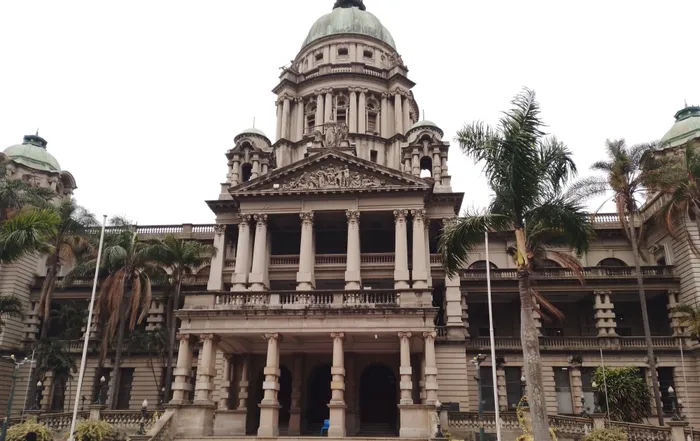eThekwini Municipality reports significant progress in its water and sanitation turnaround plan

The eThekwini Municipality says it is tackling long-standing water and sanitation challenges and addressing billing complaints.
Image: Willem Phungula
The eThekwini Municipality says its water and sanitation turnaround plan is gaining ground, and it is directing funds towards improving metering systems and infrastructure maintenance in a bid to address billing complaints.
Speaking at the Metro Trading Services Reforms Community Engagement held at the EWS Headquarters on Thursday, Acting Executive Director for Technical Services, Ednick Msweli, said under the National Treasury’s Metro Trading Services Reforms Programme, hundreds of millions of rand in funding had already been committed to help strengthen the city’s technical infrastructure.
“This is an incentive-based programme from National Treasury, whereby they make funding available to help municipalities invest in infrastructure because infrastructure is the backbone of a municipality. If we don’t have infrastructure, we can’t have development,” Msweli said.
He explained that about R54 billion is being made available nationally, with an initial R400 million already allocated to metros through Treasury’s Medium-Term Budget Policy Statement. “It’s an incentive that if you do the right thing, invest in the right thing, you’ll get that funding,” Msweli added.
Msweli said eThekwini has submitted its strategy outlining how it plans to manage its trading services, which include water and sanitation, electricity, and solid waste, and will be assessed annually by Treasury on progress.
To address billing complaints and service inefficiencies, Msweli said the city will direct a significant portion of its grant and internal funds towards improving metering systems and infrastructure maintenance. “We are going to be spending a lot of the grant and our own money on buying meters because you need meters so that people get accurate bills,” he said.
He added that the municipality will also replace aging pipes and invest in additional operational resources. “We’ll spend a lot of money replacing old pipes that are bursting all the time. We’re also capacitating ourselves to be able to respond quicker, buying more vehicles, water tankers, and trucks. If we do those things, it should turn around our performance,” Msweli said.
Councillor Mdu Nkosi, chairperson of the Trading Services Committee, said eThekwini’s transformation plan marks a “comprehensive effort to rebuild capacity, agility, and financial resilience” within the directorate.
Nkosi confirmed that National Treasury has committed about R356 million in incentives funding for the current financial year as part of the city’s turnaround support. He outlined progress on several major projects, including the Southern Aqueduct Pipeline, a R1.2 billion project that will improve water supply to areas such as uMlazi, Chatsworth, Folweni, Shallcross, Nsimbini, and KwaMakhutha.
Other milestones include the Northern Aqueduct augmentation, upgrades to Ntuzuma Pumpstation 2 and Ogunjini Water Treatment Works, and continued repairs at the Northern Wastewater Treatment Works, which has now achieved over 80% effluent quality compliance.
Residents attending the engagement welcomed the initiative but also raised concerns about persistent billing and service issues.
Julie Hoppie, a resident of Cato Manor, said she hoped the programme would bring lasting change.
“For me, it will make a great impact because we are experiencing a lot of problems regarding water. It’s been for years, but now with the intervention of other stakeholders, especially people from Germany, they come with expertise,” she said.
Asad Gaffar, chairperson of the EThekwini Ratepayers Protest Movement (ERPM) and Westville Ratepayers Association, said many residents were yet to see real improvements in billing accuracy.
“Meter readings are still not being done as agreed by their own policy,” he said. “Incorrect estimate readings still plague ratepayers. Some accounts are still being estimated for over eight months.”
Gaffar added that ratepayers often struggled to get responses from officials.
Alice Govender of the Phoenix Ratepayers Association said billing inaccuracies remain a persistent problem. “We have residents raising queries as to why meter readings submitted are not reflecting on their bills. So despite promises by the city, execution of promises is slow,” she explained.